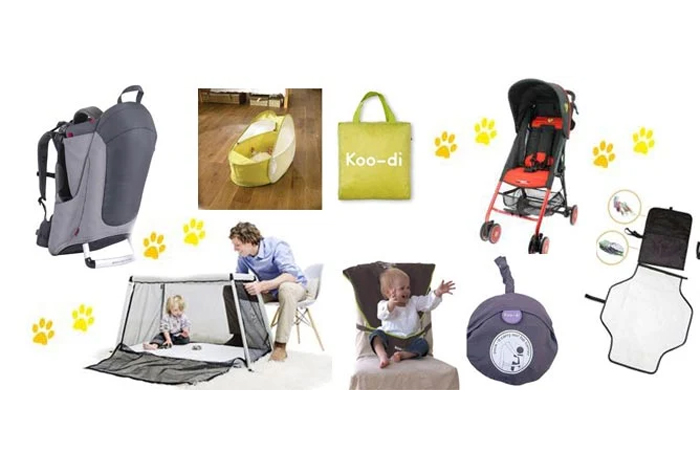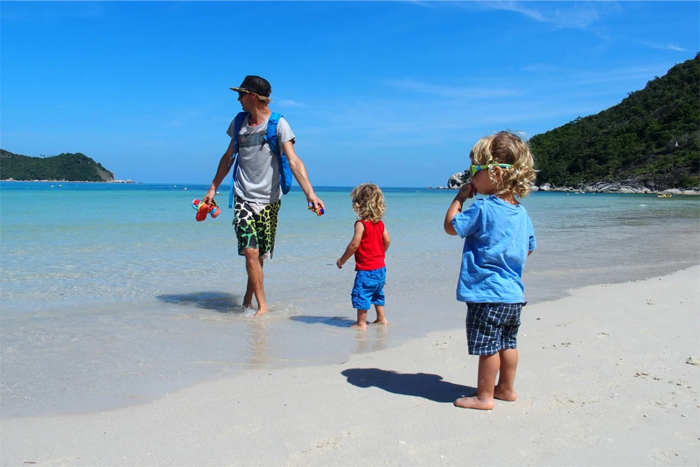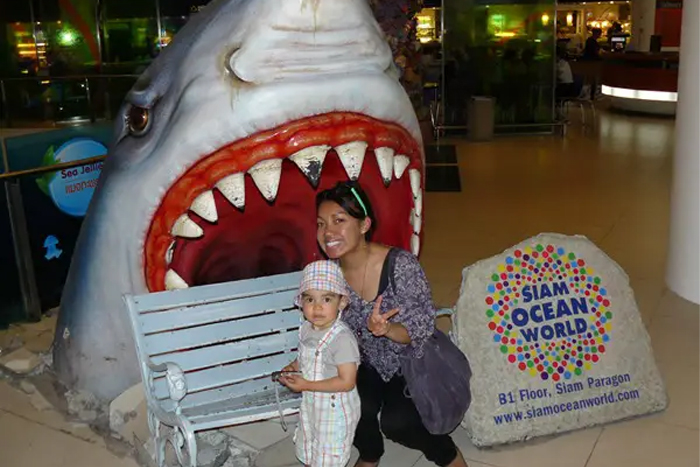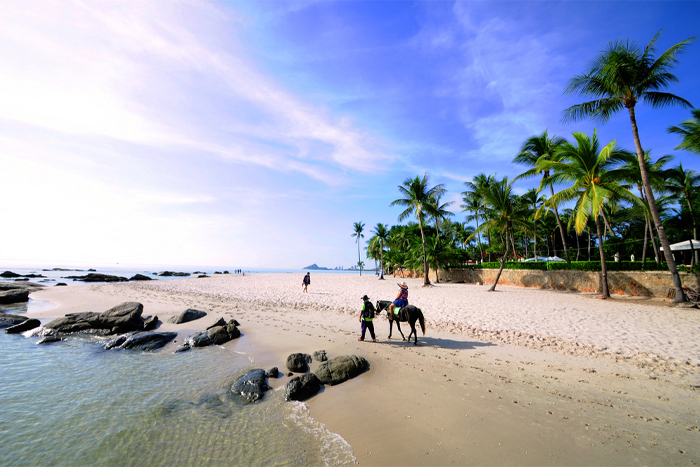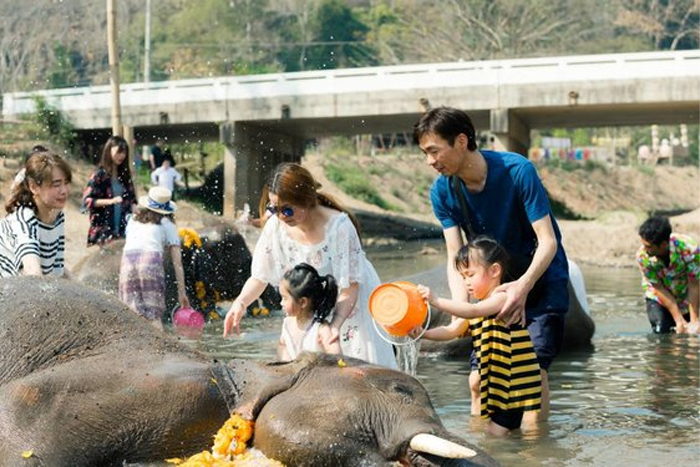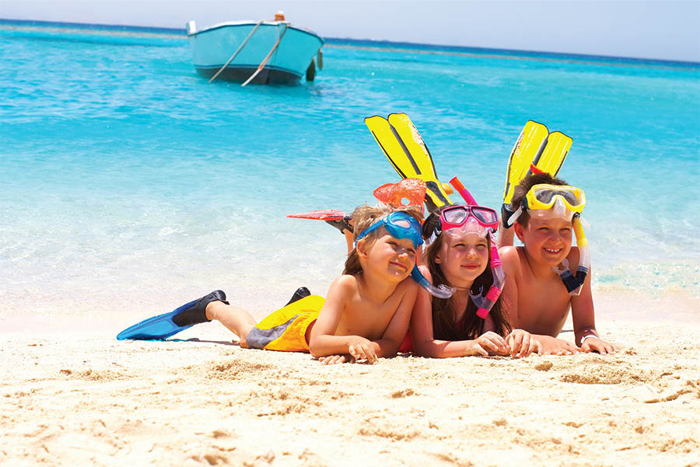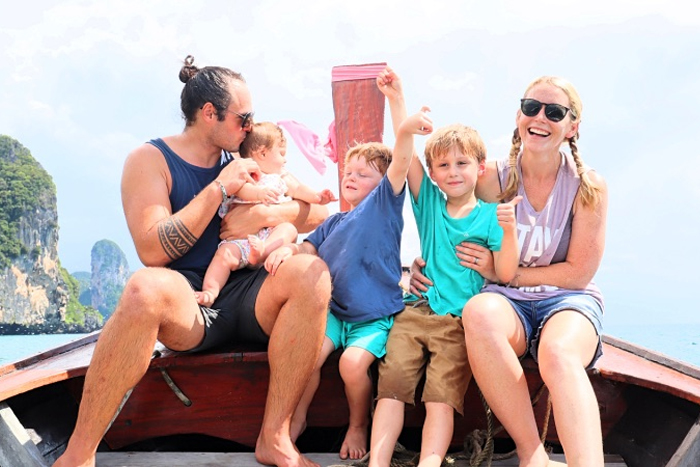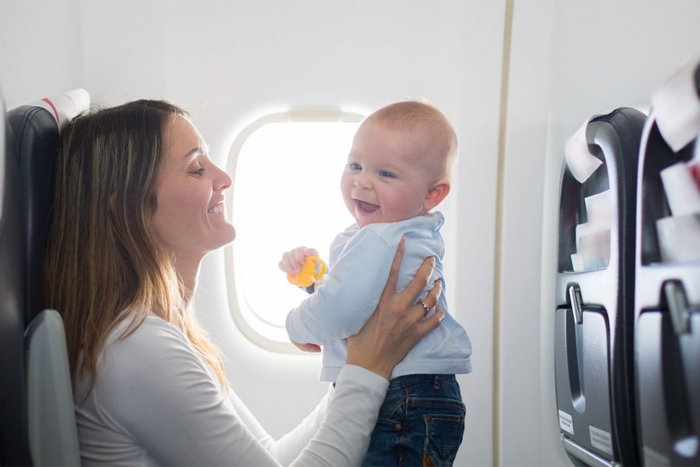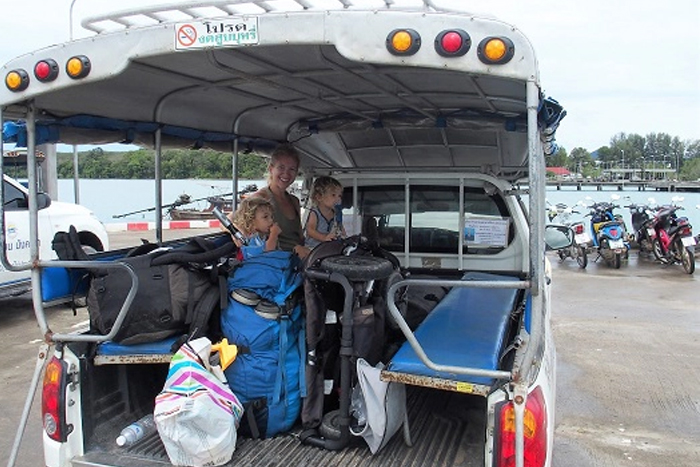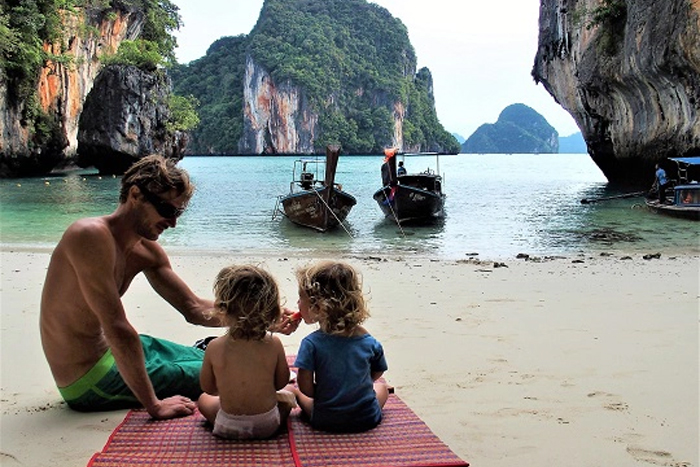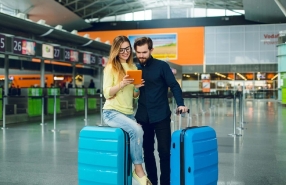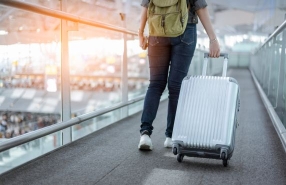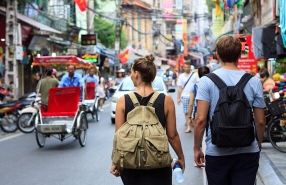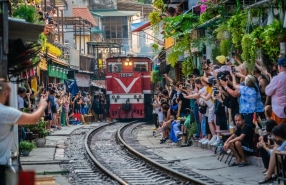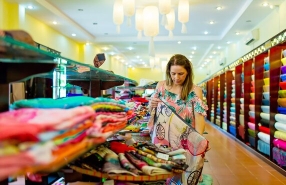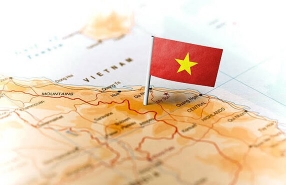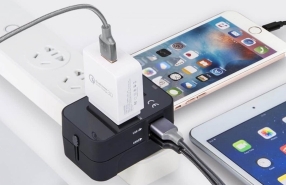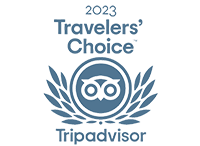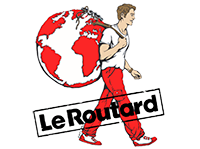Planning a family trip to Thailand with a baby requires careful preparation, but promises a unique experience. This guide accompanies you step by step in organizing your family vacation, from medical preparation to choosing suitable activities. You'll find practical advice on necessary documents, equipment to bring, and the best times to visit. Whether you dream of paradise beaches or cultural discoveries, we help you design a safe and enjoyable stay for the whole family in the fascinating kingdom of Thailand. Traveling to Thailand with a baby may seem daunting, but with good preparation, these holidays will become a wonderful memory for everyone.
I. Preparation before departure for a family trip to Thailand
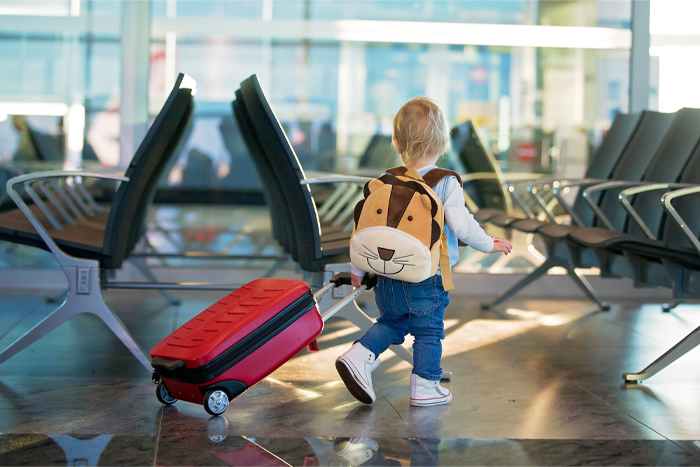
1. Vaccines and medical consultations
Before traveling to Thailand with a baby, it's crucial to consult a doctor or pediatrician. Depending on your child's age and vaccination schedule, certain vaccines may be recommended or required. Vaccines against hepatitis A, typhoid, and Japanese encephalitis are often advised. For adults, a tetanus-diphtheria-polio booster is usually necessary. Don't forget to discuss precautions against malaria with your doctor, especially if you plan to visit rural areas.
2. Necessary documents for traveling with a baby
What documents should you prepare to travel with a baby to Thailand? It's essential to have the following:
Passport: Your baby must have their own passport, valid for at least six months beyond your planned return date to your home country.
Visa: For many countries, a visa isn't necessary for tourist stays of less than 30 days in Thailand. However, check the specific requirements for your nationality with the Thai embassy.
Birth certificate: Bring a copy of your baby's birth certificate to prove your parental relationship if needed.
Health record: Carry your baby's health record or medical files, including their vaccination record. This can be useful to show that they're up to date on vaccines and for any potential medical needs during your stay in Thailand.
Travel insurance: Get travel insurance covering medical care for your baby in case of illness or accident in Thailand. Make sure it includes a medical evacuation clause if necessary.
3. Equipment to bring
Although many baby products are available in Thailand, some specific items may be hard to find or different from what you're used to. Here's a list of essential items to bring for your family trip to Thailand:
Your baby's preferred brand of formula, in sufficient quantity for the entire stay
Specific medications prescribed by your pediatrician, with their prescriptions
Diapers of your baby's usual brand, especially if their skin is sensitive
Diaper rash creams you normally use
The thermometer and fever medications you're familiar with
Hypoallergenic wipes if your baby has sensitive skin
Baby-friendly mosquito repellent you usually use
Bottles and nipples your baby is accustomed to
The special baby sunscreen you normally use
Specific foods if your baby follows a particular diet or has allergies
Don't forget to bring your baby's comfort items, like their favorite stuffed toy or a familiar small blanket. These items will help maintain your baby's routine and provide reassurance in a new environment.
II. Choosing the best time to visit Thailand with a baby
Selecting the right time to travel to Thailand with a baby is crucial for ensuring your family's comfort and safety. It's important to understand the country's climate and seasons, as well as the most suitable periods for traveling with a young child.
1. Climate and seasons in Thailand
Thailand experiences three distinct seasons:
The dry season, from November to February, offers pleasant temperatures (22-32°C/72-90°F), low humidity, and little rainfall. This is the ideal period for outdoor activities.
The hot season, from March to May, is characterized by high temperatures (30-40°C/86-104°F), increasing humidity, and a risk of occasional rain. This period can be challenging for babies.
The rainy season, from June to October, brings moderate temperatures (25-35°C/77-95°F), high humidity, and frequent, sometimes intense rainfall. This season presents an increased risk of tropical diseases.
2. Ideal periods for traveling with a baby
The most recommended period for traveling to Thailand with a baby is from November to February. The mild and dry climate is optimal for young children, reducing the risks of dehydration and sunstroke. Conditions are favorable for outdoor activities. It's best to avoid the period from March to May due to the intense heat, which can be risky for babies, increasing the chances of dehydration and heat exhaustion.
The period from June to October can be considered if you're staying in less rainy areas, but it requires more precautions, particularly against rain and mosquitoes. This period has the advantage of being less touristy, with more favorable rates.
III. Recommended destinations and activities
1. Cities and regions suitable for families
Traveling with a baby in Thailand can be an enriching and memorable experience for the whole family. Several destinations are particularly well-suited for this type of adventure, offering a balance between cultural discoveries, relaxation, and amenities adapted for young children.
a. Bangkok
Bangkok, the bustling capital, may seem intimidating at first for traveling with a baby in Thailand, but it actually offers many advantages. The city has excellent medical infrastructure, which is reassuring for parents. Large air-conditioned shopping centers provide comfortable refuges during the hottest hours of the day. Attractions like Safari World or Lumpini Park are perfect for family outings. However, it's advisable to avoid rush hours for travel and choose accommodation in a quiet neighborhood.
b. Hua Hin
Hua Hin, a beach resort popular with Thai families, is an option to consider for a family trip to Thailand. Easily accessible from Bangkok, it offers long beaches perfect for stroller walks. The Maruekatayawan Palace and the pineapple farm are family-friendly attractions. The Cicada Market, less crowded than other night markets, allows for a pleasant evening outing even with a baby.
c. Chiang Mai
For those seeking a milder climate during their trip with a baby in Thailand, Chiang Mai is an excellent option. This northern city is attractive for its slower pace of life and numerous parks. Accessible temples like Wat Phra Singh allow for a gentle cultural immersion. Chiang Mai Zoo and Queen Sirikit Botanic Garden are ideal outings for families. However, it's recommended to avoid the burning season (February-April) due to potential deterioration in air quality.
d. Phuket
Beaches are often a must when traveling with a baby in Thailand, and Phuket perfectly meets this need. The island offers a variety of family-friendly beaches, such as Kata, Karon, or Nai Harn. There are numerous family resorts with specific services for babies. The island also has good quality international hospitals, a significant advantage. To fully enjoy Phuket with a baby, it's best to choose quiet areas away from the hustle and bustle of Patong.
e. Koh Samui
Koh Samui is another ideal beach destination for
traveling with a baby in Thailand. Its beaches like Bophut or Choeng Mon are perfect for families. The island offers a good balance between relaxation and gentle activities, such as visiting the aquarium or the Pink Elephant water park. The presence of an airport on the island greatly facilitates travel. For a comfortable stay, opt for accommodation with a child-friendly pool.
f. Krabi
Krabi, with its spectacular landscapes, can also be a beautiful destination for a trip with a baby in Thailand. Ao Nang and Railay beaches are welcoming for families. Boat taxi excursions to surrounding islands can be a pleasant activity, even with a little one. Choose a hotel close to the beach to minimize travel and enjoy the night markets for a gentle immersion in local culture.
Regardless of your chosen destination for your trip with a baby in Thailand, remember to adjust your pace, plan frequent breaks, and bring everything necessary for your little one's comfort. With good preparation, Thailand can offer an unforgettable travel experience, even with the youngest travelers.
2. Suggested itineraries
Here are some suggested itineraries for traveling with a baby in Thailand, tailored to the needs of young families:
These itineraries can be adjusted based on your preferences and the length of your stay. The key is to maintain a pace suitable for your baby while enjoying the wonders that Thailand has to offer.
For a satisfying experience that exceeds your expectations, please CONTACT ATOUR ASIA,
Thailand Travel Agency now
IV. Budget and costs for traveling with a baby in Thailand
1. Airfare
For air travel with a baby to Thailand, here's general information on age groups and fares:
a. Infants (0-2 years):
- Fare: Generally 90% discount or free
- Note: Must travel on an adult's lap, no separate seat
b. Children (2-11 or 2-12 years):
- Fare: Generally 25% to 50% discount on adult fare
- Note: Separate seat assigned
c. Adults (12 years and older):
- Fare: Full adult fare
It's important to note that these policies may vary depending on the airline, travel agency, and destination country. For the most accurate information for your specific trip, it's best to contact the travel service provider or airline you plan to use directly.
2. Accommodations
Choosing accommodation is crucial when traveling with a baby in Thailand. There are various family-friendly options ranging from family hotels to resorts and apartment rentals. Average costs vary considerably depending on the region and type of accommodation chosen. In popular tourist areas, higher rates can be expected, while less frequented regions often offer more affordable options. It's essential to ask in advance for necessary baby equipment such as a crib or bathtub. Some establishments provide these for free, while others may charge an additional fee.
3. Local transportation
Transportation options in Thailand are varied and may include taxis, buses, and trains. Safety is paramount when traveling with a baby in Thailand, especially by car. It's recommended to bring your own car seat, as they may not always be available or may not meet Western safety standards. Local transport costs are generally affordable in Thailand but can vary by region. Taxis and tuk-tuks are convenient for short distances, while buses and trains offer economical options for longer journeys.
4. Food
Planning a family trip to Thailand can be an exciting adventure, especially when it comes to exploring the country's diverse culinary landscape. Thailand offers a plethora of family-friendly restaurants, catering to both adventurous eaters and those with more particular tastes. From bustling street markets to upscale dining establishments, families can indulge in a wide array of local Thai specialties and international cuisines. When budgeting for your family trip to Thailand, it's essential to consider that food costs can vary significantly depending on where you choose to dine. While tourist-oriented restaurants and high-end establishments in popular destinations may command premium prices, opting for street food vendors and local markets can provide a more authentic and budget-friendly experience.
Families with young children should factor in the cost of baby food and bottled water, as these items are crucial for a comfortable family trip to Thailand. Fortunately, supermarkets in major Thai cities typically stock a good selection of baby products, though it's worth noting that prices may be higher than what you're accustomed to at home. To make the most of your family trip to Thailand, consider balancing your dining experiences between various options to both savor the local flavors and keep your budget in check.
5. Activities and sightseeing
Thailand offers a diverse array of family-friendly activities, making it an excellent choice for a family trip to Thailand with a baby. From serene temple visits and exciting nature excursions to splashy water parks, there's something to delight every family member. When planning your family trip to Thailand, keep in mind that activity costs can vary widely depending on the location and type of attraction. Many tourist sites offer child discounts or even free entry for very young children, potentially making your trip more affordable. It's advisable to research these family discounts in advance and plan your itinerary around activities suitable for your baby's age and abilities. This way, you can ensure a balanced and enjoyable experience for everyone, allowing your family to fully immerse in the rich cultural and natural wonders that Thailand has to offer.
6. Other costs to keep in mind
It's important to budget for unexpected expenses and basic baby products. Prices for essentials like diapers, wipes, and formula may be higher in Thailand, especially in tourist areas. It's recommended to bring a sufficient quantity of these products from your home country. Additionally, potential medical expenses should be considered. Although healthcare is generally less expensive in Thailand than in Western countries, it's crucial to have adequate travel insurance covering medical care for the whole family.
V. Practical tips for traveling in Thailand with a baby
Here are some practical tips for traveling in Thailand with a baby:
1. Health and safety:
- Consult a pediatrician before departure for necessary vaccinations.
- Pack a baby-friendly first aid kit.
- Ensure you have travel insurance covering the whole family.
2. Environmental protection:
- Use light but covering clothes to protect from the sun.
- Apply baby-safe mosquito repellent.
- Bring a hat and sunglasses for the baby.
3. Food and hydration:
- Bring enough formula if needed.
- Always use bottled water for drinks and meal preparation.
- Be cautious with street food to avoid digestive issues.
4. Transportation and accommodation:
- Choose family-friendly accommodations.
- Bring your own car seat if possible for travel.
- Opt for short trips and plan frequent breaks.
5. Planning and flexibility:
- Adapt your itinerary to the baby's rhythm (naps, meals).
- Plan activities suitable for your child's age.
- Stay flexible and ready to change plans if necessary.
6. Baby's comfort:
- Bring familiar toys and objects to comfort the baby.
- Pack clothes suitable for the tropical climate.
- Don't forget essentials like diapers and wipes.
By following these tips, you can better enjoy your stay in Thailand while ensuring your baby's well-being.
Preparing for a trip to Thailand with a baby requires careful planning but can be a rewarding experience. By considering health, safety, suitable accommodation, and budget, while remaining flexible, you can create an enjoyable stay. Thailand, with its child-friendly culture, offers an excellent destination for young families. Although the pace may be slower, it will allow you to discover the country from a new perspective. With necessary precautions and a positive attitude, this trip can become a unique opportunity to create precious memories and introduce your child to the world from an early age.
How to get around Thailand with a baby?
When traveling with a baby in Thailand, prioritize taxis with car seats, air-conditioned buses for long journeys, and use tuk-tuks cautiously for short distances. Trains are a comfortable option between major cities. Bring a lightweight stroller or a baby carrier. Choose reliable transport companies and avoid rush hours to ensure comfort and safety for your baby.
Is Thailand safe for traveling with baby?
Yes, Thailand is generally considered a safe and suitable country for traveling with a baby. Thai culture is known for its warm welcome towards children, and many tourist facilities are family-friendly. However, as with any travel with a baby in Thailand, it's important to take precautions regarding health, hygiene, and safety. With good preparation, Thailand can offer an enriching experience for families traveling with young children.


